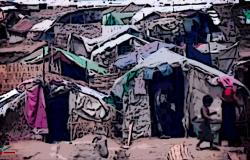
The purpose of this article is to demonstrate how a lack of policy attention has exacerbated the extreme circumstances faced by the Rohingya and how they can contribute to deterioration of their health, livelihood, and education, as well as their repatriation to their homeland. This article is based on data collected from field observations and interviews prior to and during the pandemic. This study confirms that the Rohingya refugee populations endure a higher level of suffering from lack of food security and livelihood, lack of basic amenities and financial resources, and accommodation is overcrowded compared with the pre-pandemic period. The lack of a specific policy for the Rohingya has compounded the current situation in Bangladesh. This research is crucial for countries receiving refugees as well as the countries from which they flee and other actors.
Image: AK Rockefeller via Flickr (CC BY-SA 2.0)